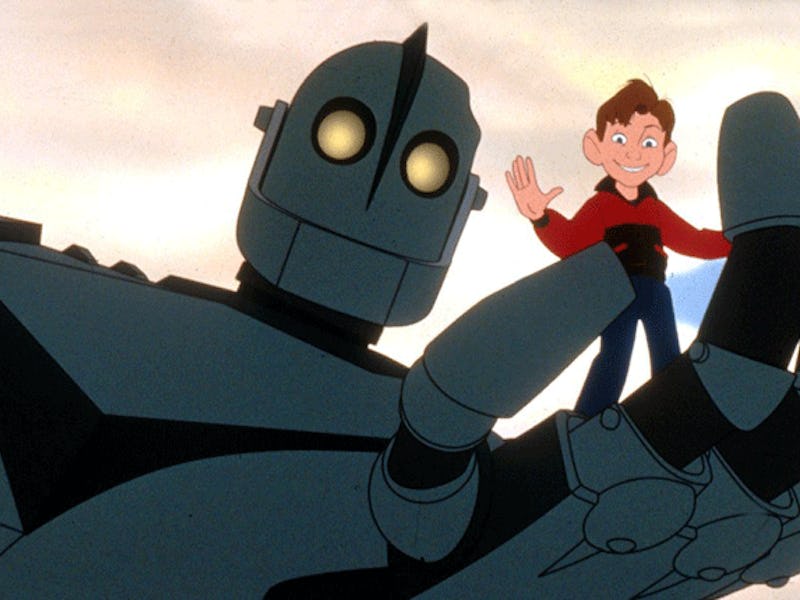Robots Won't Change Work Until They Become Our Friends
Your Roomba needs to be your Roombro.

Robots are expected to put many people out of work in the coming years. That we know. But before manufacturing and service jobs become totally automated, robots need to win our hearts and minds.
According to the most recent edition of From Internet to Robotics, a comprehensive report on the rise of automatons from researchers at Yale, Carnegie Mellon, and other schools studying the robotic shift, robots need to clear several technological and psychological hurdles before they’re really accepted in the workplace. To start, robotic hands need to be more dexterous, and controlling them needs to get much easier; but above all, human workers will need to feel like the robots are their friends.
The easiest way to do that is through consumerization, or developing automatons for the masses, and using that process to raise more awareness of the benefits robots can offer. Most technologies undergo this process: computers, phones, and many other products got their start as government or business-focused tools that evolved into their current forms because of consumer interest.
“An additional benefit of the ‘consumerization’ of robotics would be the acceptance and familiarity by the target workforce,” the researchers explain in their report. “When people are accustomed to interacting with robots in their personal life, then they will have more acceptance of working with them in their professional life and will be less likely to view the robots as a threat.”
That process is already taking place. Just look at one of this year’s coolest gifts, Anki’s Cozmo. It’s a toy robot that uses A.I. to play games, respond to commands, and show more personality than some humans. Cozmo is adorable, and it’s probably the best robot ambassador we’ve seen yet.
Robots don’t need to be advanced to be your friend. One-fifth of vacuum cleaners are now robots, thanks to the Roomba, and people have already formed strong connections to their robotic housecleaners. The From Internet to Robotics researchers said that two-thirds of the owners of iRobot’s autonomous vacuum cleaner have named their Roomba and one-third admits to taking their Roomba to “visit friends.”
Right now it seems weird to bring a vacuum cleaner along on a social call. But in the future it might be perfectly normal, and once that happens, why would it be any weirder to work with a robot? Once that initial obstacle has been hurdled, it would be easier for companies to introduce more robots into their workforce over time. First we make friends with automatons, then we consider them co-workers, and then we figure out how to get by in a world that doesn’t need as many human workers.
The researchers estimate this shift will take place in stages. In five years they expect assembly robots to be common on the factory floor; in 10 years they believe we’ll have systems that “automatically detect and respond appropriately to conforming/nonconforming human behaviors in the workspace while maintaining consistent performance”; and in 15 years they’ll “recognize, work with, and adapt to human or other robot behaviors in an unstructured environment.”
That should be more than enough time for people to get used to the idea of living alongside robots. Children will grow up with devices like Cozmo, adults will form unhealthy relationships with their robot vacuums, and everyone who doesn’t go along with the scheme will spend a lot of time searching for John Connor. (Or, you know, fade into obscurity.) The robotics revolution will be the friendliest in history.